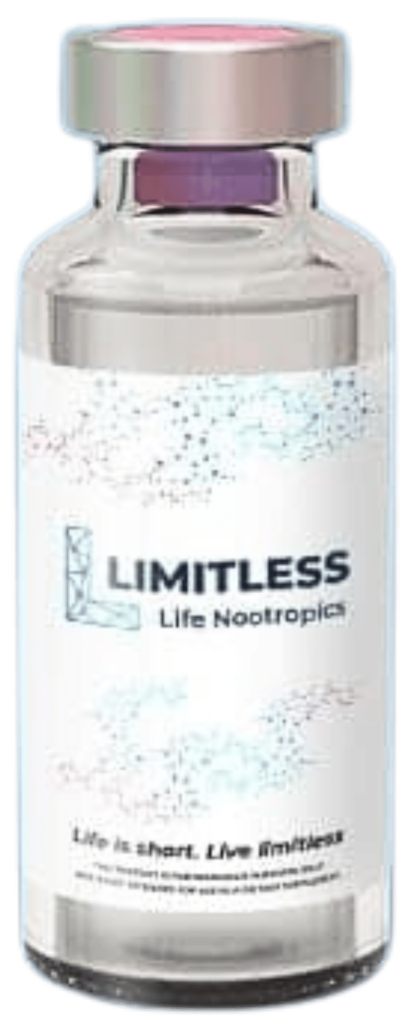Ask any health nut about the quality of the water they drink and they’ll look at you as a complete wackjob.
Yet it’s quite the opposite: The QUALITY of water you drink is critical in the benefits you get out of it.
Sure, there are numerous benefits to drinking lots of water every day… but not if you’re putting the crappy kind into your body.
After sitting down and researching the best type of water to put into my body, there was only one clear answer: Deuterium-depleted water.
But before I get into why I’m making this recommendation, let’s take a peek at what you’re drinking right now.
Table of Contents
ToggleThe Dangers of Drinking “Bad” Water
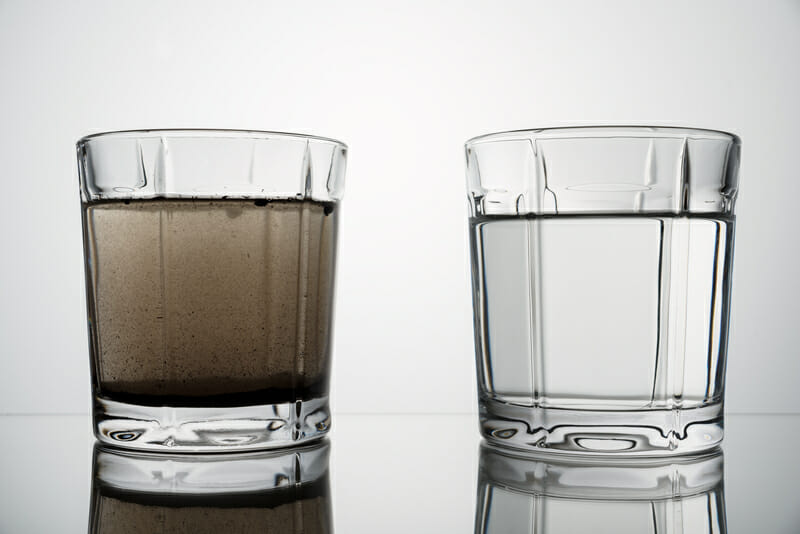
If you have any recollection of recent history, the first thing that comes to your mind would be the unresolved water crisis in Flint, Michigan:
“In 2015, Flint, Michigan, made headlines when a change in its water supply exposed thousands of children to high levels of lead, a neurotoxic metal.
The tragedy led other communities around the country to take a closer look at their own drinking water quality.
Many places, such as Newark, New Jersey, have since discovered dangerously high lead levels, too”
Yet it doesn’t take a catastrophe of this nature for your drinking water to be polluted with dangerous contaminants… even if it meets “official” health standards:
“Across the U.S., drinking water systems serving millions of people fail to meet state and federal safety standards.
Millions more Americans may be drinking unsafe water without anyone knowing because limits set by the U.S. Environmental Protection Agency (EPA) are too high, the contaminants it contains are unregulated, or their drinking water source is too small to fit under EPA regulations”
(Source)
Ironically, the EPA website tells you precisely what will happen if you consume toxic water for too long:
“If drinking water contains unsafe levels of contaminants, it can cause health effects, such as gastrointestinal illnesses, nervous system or reproductive effects, and chronic diseases such as cancer.
Factors that can influence whether a contaminant will lead to health effects include the type of contaminant, its concentration in the water, individual susceptibility, the amount of water consumed, and the duration of exposure.
…Exposure to high doses of chemicals can lead to skin discoloration or more severe problems such as nervous system or organ damage and developmental or reproductive effects.
…Exposure to lower doses over long periods of time can lead to chronic, longer-term conditions such as cancer.”
Unfortunately, boiling your water doesn’t always get rid of unwanted and harmful contaminants… and in some cases can INCREASE their concentration!
Not to mention that conditions such as vomiting, nausea, and diarrhea can manifest within 48 hours of drinking a few glasses of “dirty” water.
And although you can order a high-quality water purifier, they are very expensive and aren’t always practical.
The Benefits of Drinking Pure, Clean Water
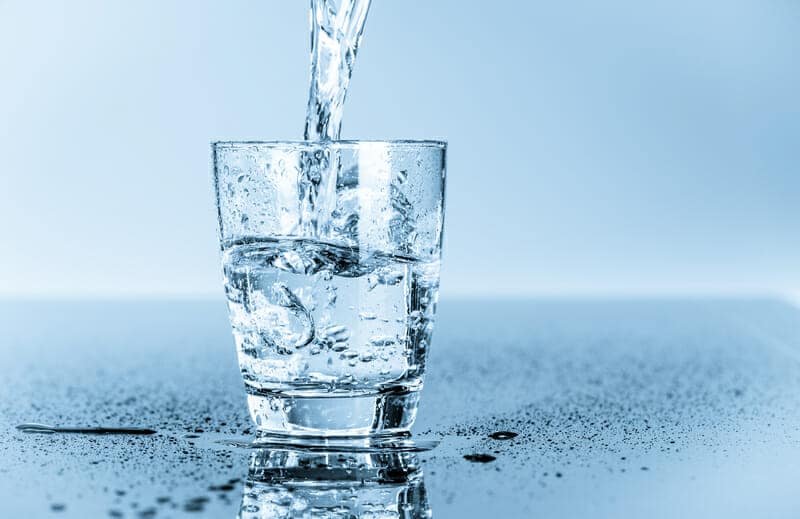
Although it should be obvious to even the most brain-dead individual why drinking 1-4 liters of water per day is beneficial for your health, it’s easy to slip up on getting your optimal intake of water every day.
So as a brief reminder, here’s why you MUST drink lots of water every day:
- Improves your brain function – memory, cognitive performance, ability to concentrate, etc.
- Increases your energy levels (even MILD dehydration can be the difference between a healthy brain and a rotting brain)
- Fully optimizes your physical performance
- Keeps constipation away for smooth and painless bowel movements
- Often takes care of sudden headaches, one of the MAJOR signs of dehydration
- Treats hangovers, which are brought on by dehydration
- Helps you lose weight via boosting your metabolism
As you can see, keeping yourself as far away from dehydration as possible is precisely why you need to be drinking water every day.
With all of this basic information out of the way, let’s get into the heart of my recommendation to drink deuterium-depleted water.
What Is Deuterium-Depleted Water?

Before we can talk about deuterium-depleted water (DDW), also known as “light water”, we need to talk about “heavy water” first.
Wikipedia has a straight-forward definition of heavy water:
“Heavy water (deuterium oxide, H2O, D2O) is a form of water that contains only deuterium (2H or D, also known as heavy hydrogen) rather than the common hydrogen-1 isotope (1H or H, also called protium) that makes up most of the hydrogen in normal water.
The presence of the heavier hydrogen isotope gives the water different nuclear properties, and the increase of mass gives it slightly different physical and chemical properties when compared to normal water.”
D2O is automatically “heavier” due to deuterium containing one more neutron than hydrogen, which automatically makes it twice as heavy as hydrogen.
(And for those of you who don’t know what an isotope, this link does a good job of providing a simple explanation)
Like any bad habit, you won’t feel the negative effects if you just drink one glass of heavy water.
But consume it repeatedly over time, and you might run into some unwanted problems:
“You can drink a glass of heavy water and won’t suffer any ill effects. If you drink a few glasses, you might feel dizzy because some of the heavy water would change the density of fluid in your inner ear. If you only drink heavy water, eventually D2O molecules replaces enough H2O to cause problems.
…heavy water disrupts mitosis, the type of cell division used to repair injuries and grow new cells. The mitotic spindles of cells containing too much heavy water simply aren’t able to equally divide a cell to form two identical new ones.”
Which leads us towards defining DDW:
“On average every natural water has 150 parts per million (ppm) of deuterium per litre, so every 1 hydrogen atom out of 6000 is deuterium.
Deuterium Depleted Water is very low in deuterium (25 – 125 ppm).”
(BTW, the “ppm” measurement is just a fancy way of telling you how many molecules of D2O there are for every one million molecules of water (H2O))
NOTE: D2O itself is very rare in nature, as most “heavy water” consists of HDO (1 hydrogen atom and 1 deuterium atom attached to an oxygen atom. But for the sake of brevity, “D2O” and “heavy water” will be used synonymously throughout the rest of this article.
Why Should I Care About Deuterium-Depleted Water? [Historical Discoveries]
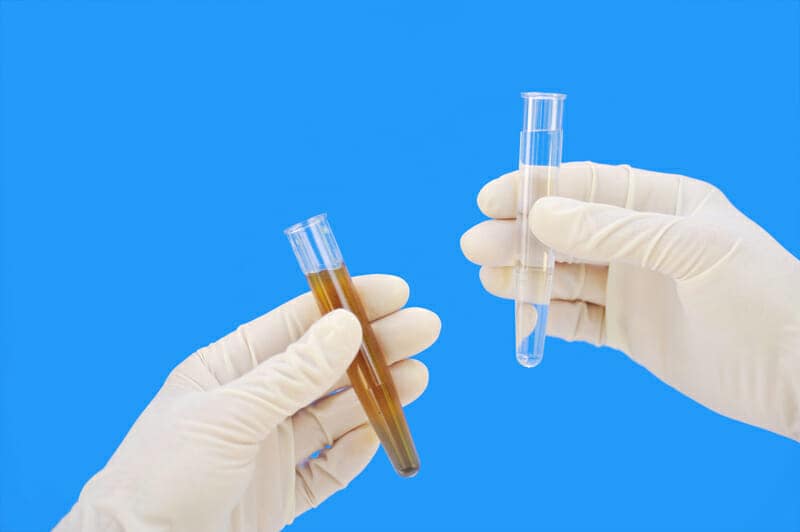
At this point, you’re likely wondering why anyone should give a damn about this type of water.
Less deuterium in the water, slightly better health… whoop-dee-do.
There’s obviously a LOT more to this miraculous health discovery, otherwise I wouldn’t bother writing an entire article about it.
In order to give you a satisfactory answer, we need to do some deep digging into the history of DDW and how it relates to the human body…
1930s: Deterium’s Harmful Effects on Bacteria
Numerous scientists such as E. Newton Harvey and others observed that “heavy water” was responsible for slowing down the growth of numerous bacterial organisms (i.e. specific metabolic functions are compromised), exerting toxic effects on said organisms, and sometimes causing their death within less than one week.
1959-1961: Lower Deterium Levels Improve Human Lifespan?
Anti-aging researchers in Russia were particularly curious about an abnormally high number of people who reached at least 100 years of age in phenomenal vitality and health…
“While the average percentage of centenarians in all of the Soviet Union was less than 50 per one million, in certain areas of Siberia [Yakutia and Altai] there was a striking number of centenarians – 324 per one million people.
Knowing that these regions were uniquely provided with pristine glacial-melt water from high altitudes, [they were] motivated to investigate this factor as a possible common denominator of the longevity of their inhabitants.
… [researchers] discovered that ancient ice, high latitude mountain snow, and glacial runoff were 15-20% depleted in deuterium compared to what became known as the Vienna Standard Mean Ocean Water (VSMOW), which is 155.76 ppm at the equator”
These same observations were also noted in areas such as Dagestan (353 per one million people) and Teteven (279 per one million people).
1967-1968: Understanding How Deterium Impacts The Human Body, and Other Forms of Life
The same group of scientific researchers, alongside many others, were able to reach more important conclusions about the consequences of drinking “heavy water”…
First, D2O “delays germination, slows growth, reduces survival, results in bleaching of the leaves and delays flowering” in seeds (Source, Source).
Second, not only does deuterium bond to oxygen much stronger than hydrogen, but the biochemical reactions in your body are WAY slower when D2O is involved instead of H2O:
“One of such effects perhaps the most significant is the “kinetic isotope effect,” that is, the change in the rate of a chemical reaction that results from the substitution of a heavy isotope for a light one.
Chemical bonds between deuterium and other atoms are slightly but measurably more stable than the corresponding bonds involving ordinary hydrogen.
Calculation indicates that a carbon-deuterium bond may undergo reaction at only a seventh the speed of a carbon-hydrogen bond [i.e. 7 times slower]”
Some studies even suggest the reactions are slowed down 10-fold, and this has disastrous consequences for the human body:
“Many biological processes including DNA replication, DNA repair, and cytochrome P450 enzymatic reactions work on rapid timescales that are sensitive to the kinetic isotope effect”
…Mathematical models suggest that the kinetic isotope effect can cause system-wide metabolic changes.
In other words, slowing down a single reaction can have a “butterfly effect” elsewhere in your body and cause major disruptions.
Not only that, in other studies, deuterium slows the speed of reactions drastically–30- to 800-fold–by preventing a process called quantum tunneling”
Third, numerous studies done in adult mice given D2O consistently reached the same conclusions (Source):
- Newborns from female adult mice drinking “heavy water” weighed 20% less than those born from mothers who drank normal water
- Development of said newborns was severely slowed down – puberty at a later age, males were sexually inactive
- When the female newborns eventually became pregnant, they could not lactate and most of THEIR newborns ended up dying
This phenomenon was explained by the possibility of “heavy water” accumulating in the females’ ovaries, thus disrupting ovary structure and function
1975: Deterium’s Effects on DNA Replication
Building on the previous decades of work, scientist T.R. Griffiths proposes a mechanism through which deuterium may “modify” your DNA:
“It is considered that deuterium has an effect on biological processes due to the bounding mechanism of the hydrogen.
Hydrogen bonds play a role in DNA structure, being partially responsible for the double DNA strand, assuming a helical shape.
The hydrogen bonds created by deuterium atom are stronger than normal hydrogen atom, because deuterium is more electronegative than the hydrogen and the effective size of the bond C-D is smaller than the bond C-H”
In a nutshell, here is what all of this means:
- Deuterium can affect the speed at which DNA molecules are constructed, along with their final structure (potentially leading to more DNA errors during transcription)
- Deuterium can negatively affect the shape of enzymes responsible for DNA replication
- Deuterium may compromise the process of DNA repair that takes place when DNA is damaged
- Deuterium interferes with the process of cell division (i.e. mitosis), which can lead to outcomes such as mutations and cell death (i.e. apoptosis)
To be clear… this does not mean you have to obsessively worry about every single molecule of deuterium in your body.
After all, just take a look at the relative levels of deuterium across various forms of water:
- Ocean: 155 ppm
- Mineral waters from select countries: 140-145 ppm
- Antarctic glacier: 89 ppm
(For reference, DDW can contain anywhere between 1-120 ppm of deuterium)
We are simply attempting to REDUCE the amount of deuterium in our bodies, especially considering how much of it we have compared to other essential nutrients and minerals – for instance, 12-14 nmol/L of deuterium in our blood versus 2.2-2.6 nmol/L for calcium and 0.75-1.2 nmol/L for magnesium, (a 3-5 fold difference!)
Put another way, a couple of drops of “heavy water” in each glass of water can add up quickly over a long period of time!
Likewise, reducing the deuterium content of your drinking water by just 16% can lead to a significant and positive outcome in your overall health:
“Inhabitants of the Hunza Valley [in Pakistan] live to be in their 90s while maintaining an active lifestyle. This has always been attributed to their water (glacial).
Hunza water has been studied over the years: mineral content, molecular structure, colloidal status, zeta potential, etc. but no one has considered the deuterium content of the water—until now.
Hunza water is naturally deuterium depleted—estimated to be about 133 ppm deuterium [versus 155 ppm for normal surface water].
According to recent studies, this reduced deuterium concentration is enough to make a difference in numerous health parameters”
(FYI – more information about this phenomenon can be found here)
1998-2002: Human Clinical Trials Investigate The Use of Deuterium-Depleted Water
Thanks to the investigative work of Dr. Gabor Somylai in the 90s involving thousands of patients in numerous double-blind clinical trials taking place in Hungary, we finally saw how powerful DDW can be in treating debilitating conditions.
Specifically, his research revolved around the anticancer effects of DDW revealed 3 important takeaways:
- DDW improved the survivability of cancer patients
- DDW works very well alongside traditional treatments such as chemotherapy and radiation
- DDW was virtually free of any side effects
If everything you’ve seen so far is impressive, this next discovery will blow your mind…
2007: Deuterium Is PROVEN To Damage Your Mitochondria
As anyone who took high school biology already knows, the mitochondria is the “powerhouse of the cell” because it generates ATP (adenosine triphosphate), which in layman’s terms is the primary source of energy for your body.
But the final step in creating ATP revolves entirely around an enzyme called ATP synthase, of which there are roughly 320,000 per individual mitochondrion (and roughly 10 million ATP molecules are produced per second, PER cell).
Now, in order to explain the role deuterium plays in relation to ATP synthase, pay close attention to this summary:
“ATP synthesis occurs with the continuous turning of proton (P) loading positions of the membrane rotor – arrow – C10 with about 9000 revolutions per minute
At 9,000 revolutions per minute the ATP synthase C10 subunit transfers approximately 90,000 protons per minute
That means 1,500 protons are released into the mitochondrial matrix in each second
ATP synthase is jammed by deuterium’s isotope effect, which is the heavy stable isotope of hydrogen
There is one deuterium for every ~6,600 proton transfers in nature [therefore deterium abundance is 1 per approximately 3300 water molecules]
At 1,500 protons/second transfer velocity the nanomotor would break down every ~4.4 seconds (6600/1500) in environmental water”
All of this was discovered by Abdullah Olgun in 2007 (Source, Source) and it revolutionized our understanding of how excess deuterium negatively impacts our short-term and long-term health.
To explain all of this in an even simpler manner:
“[Deuterium measurements] allow you to determine your “true” capacity to make energy – ATP, the body’s energy currency
… your body is powered by nanomotors, tiny engines in your mitochondria that make energy (ATP) using the hydrogens in your food. Deuterium is so heavy that it breaks the nanomotors like sand in a fuel tank.
… Your body will break down, become diseased and prematurely age if you don’t have enough energy to properly power your heart, skin, adrenal glands, brain, thyroid, muscles and other organs
… , the inability of mitochondria to make enough energy is a hallmark of aging, cancer, diabetes and Alzheimer’s”
Are you starting to realize just how significant of a role deuterium plays at a cellular, tissue and organ level?
How one tiny molecule has the power to rob you of your energy levels over time?
Why this matters when 98.8% of the molecules in your body are WATER and 458 sextillion (458 with twenty-one 0’s) deuterium atoms are running around in your body every 24 hours?
This right here is one of the key differences between an energetic 9-year-old child and a dying 90-year-old man or woman?
I’m about to show you EXACTLY how to get your hands on deuterium-depleted water, and it’s from two genius chemists who have the following to say about all of this:
“Reducing the body’s total body burden of deuterium may be the most important longevity biohacking discovery of our time.”
But first, let’s quickly review some of the directly-studied benefits of drinking DDW.
Science-Based Health Benefits of Deuterium Depletion

You can already imagine all of the life-changing benefits deuterium depletion (DD) has to offer us, but here’s a small preview of what to expect:
- In rats, DD helped treat diet-induced obesity while reducing systematic inflammation through increasing production of anti-inflammatory cytokines
- DD may possess anti-tumor properties and shows promise in suppressing the growth of cancerous cells (also observed in human lung carcinoma and breast cancer)
- DD led to an observance of anti-aging effects in aging female rats
- DD prolonged the survival time in a retrospective study involving 4 lung cancer patients with brain metastasis
- DD improved the median survival time of lung cancer patients by as much as 2-4 fold (unlike the previous study, 129 patients total were involved)
- DD “reduced stress-induced depressive-like signs” in a study using mice
That’s not all…
Higher deuterium levels in our water are significantly correlated with an increased frequency of numerous disease states:
- Depression and psychosocial distress
- Poor oral health (tooth loss)
- Metabolic disorders such as diabetes and obesity
- Cardiovascular disease (stroke, hypertension, etc.)
Not including the benefits of optimizing your mitochondrial health, such as proper skeletal muscle development and increased oxygen capacity.
Unfortunately, it’s not enough to rely on your body’s natural mechanisms for lowering its deuterium levels:
“According to recent studies and research, lowering the deuterium content in the tissues and organs is a natural biological process all living organisms do.
Our body is naturally able to do this, however, factors such as ageing, sickness and the lack of exercise or sunlight can have a bad impact on completing this procedure.
By drinking deuterium depleted water, we can help this natural process by simply consuming less heavy water (D2O).
Keeping the deuterium content low can be easily done by consuming proper water and food. This way our body won’t have to deal with so much maintenance when it comes to targeting high deuterium concentration.”
Which is why we have finally arrived at my #1 recommendation for deuterium-depleted water!
The #1 Place To Buy LEGITIMATE Deuterium-Depleted Water Online
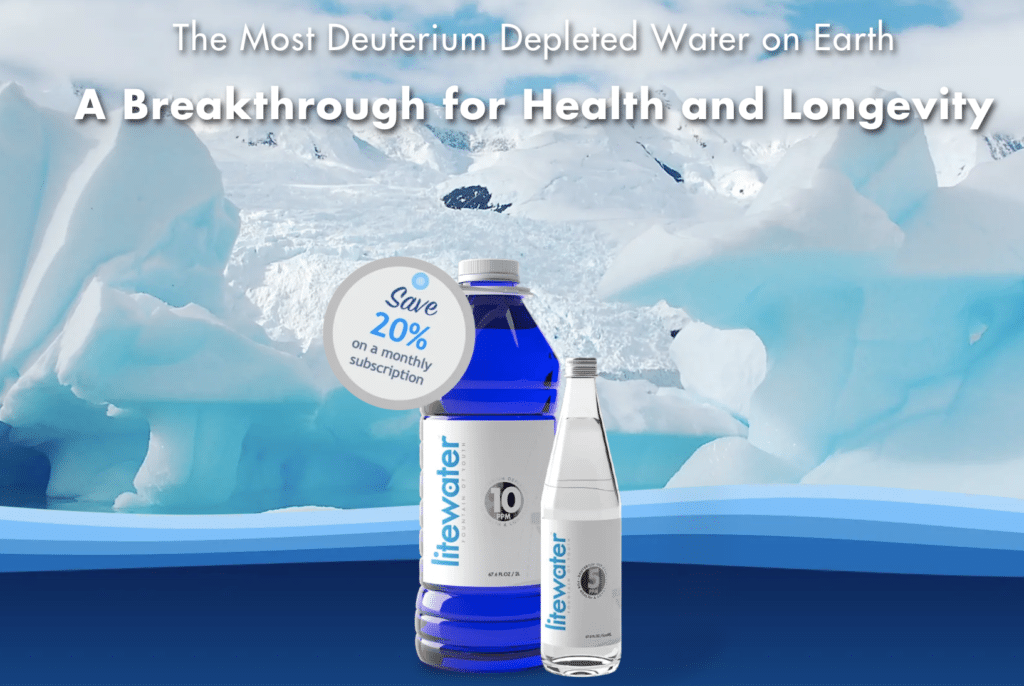
The ONLY place you should be getting deuterium-depleted water from is Litewater Scientific.
This quantum-age company was founded by Victor Sagalovsky and Robert Slovak, two pioneers in the field of DDW who have been obsessively studying this topic for over two decades, publishing numerous scientific presentations, and writing many articles on the topic of water and health.
Under the belief that DDW is the undiscovered secret for rejuvenation and radical life extension, they have created the world’s lowest concentration of deuterium in water at 5 ppm, 10 ppm, or 25 ppm… and made it commercially available for the entire world!
Litewater is the cleanest and purest water you will ever find, free of all contaminants and impurities to closely match the water already inside our cells (nor were any chemicals used to create it).
If you don’t believe me, you can feel rest assured the deuterium content of their water is accurate within ±3 ppm and fully verified by an independent 3rd party lab.
And the official lab report is also on their official website. 😉
Bear in mind that NOBODY in the world can do what they do, at least not as well as they can:
- Less than 10 facilities exist in the world for making deuterium depleted water
- Vacuum fractional distillation-rectification is the technology they use to imitate and amplify the planet’s hydrological cycle (therefore removing deuterium from water)
- This requires a MASSIVE amount of energy, time, specialized equipment and engineering… something no industrial, commercial, or home water filtration technology can properly do
- They also use the world’s most advanced stable isotope testing equipment (fourth-generation cavity ringdown spectroscopy) for unbeatable precision and accuracy
Now you might be wondering… HOW MUCH of the DDW from Litewater do I need to lower my body’s deuterium to an acceptable level?
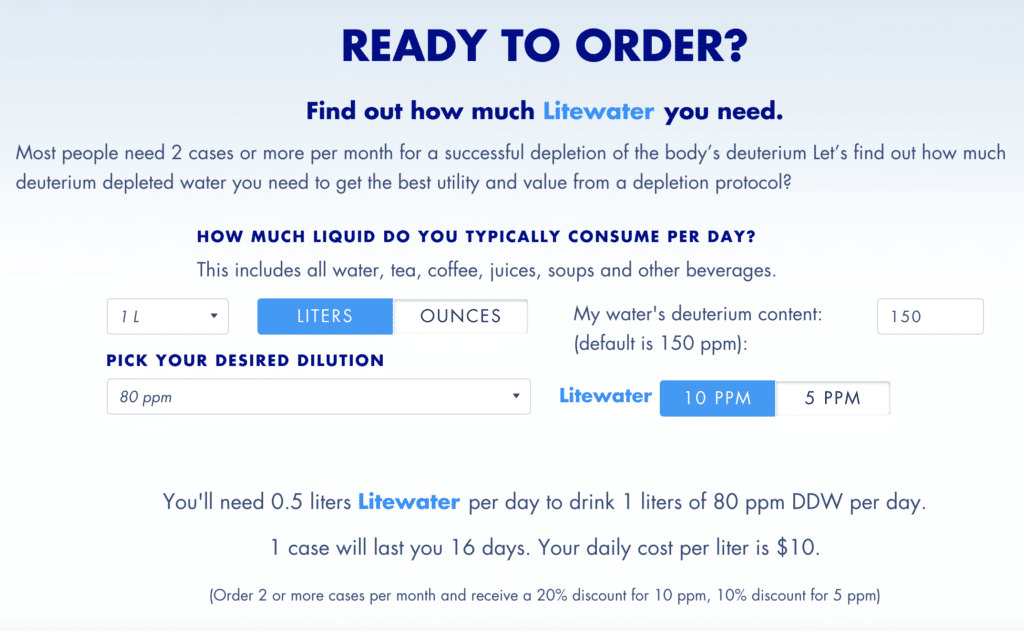
Here’s what Victor and Robert recommend…
- The ideal deuterium level for the body is @ 120 ppm
- Most people test at the 150 ppm deuterium level (Certain healthy long-living cultures consuming DDW all their entire lives commonly have a deuterium level of 130 ppm)
- Consume at least 1 liter of 80-120 ppm deuterium depleted water (DDW) for a minimum of 4 months, or 1.5 liters of 80-100 ppm DDW daily for 45-60 days
- Make sure you’re also following a fully optimized lifestyle – eliminating all other beverages prepared with regular water, proper nutrition, intermittent fasting, high-quality sleep, regular exposure to sunlight, vigorous exercise, etc.
Anyone starting or maintaining a deuterium depletion protocol would be wise to test their endogenous levels of deuterium frequently to optimize their DDW consumption and overall health strategy.
Look no further than Litewater for the world’s highest-quality drinking water
Use code JAYC for $20 off your order!
Additional Reading Resources for Deuterium-Depleted Water

Frankly, I don’t think I could possibly cover the entire history and scientific evidence behind deuterium-depleted water within a single article.
That would be more suitable for a best-selling Amazon book. 😉
But thanks to the exhaustive research and groundwork done by the leaders of Litewater, you’ll have more than enough material to keep you up all night.
The official website and the corresponding FAQs are great references if you want to get the quick-and-dirty summary of why you should drink more DDW.
To read more about the detailed history of DDW and see some discoveries I wasn’t able to include in this article, go here.
If you want to know exactly how much deuterium is in your body, I highly suggest purchasing this test kit.
This website has an EPIC compilation of every single academic study every published on the connection between DDW and fully optimized health.
If you REALLY want to master the subject of deuterium-depleted water and know everything under the sun about it, this seminar is worth your while to attend.
And as always…




